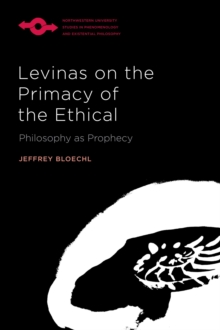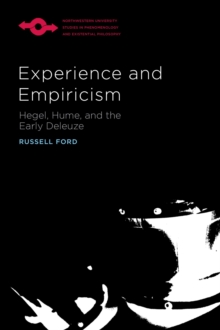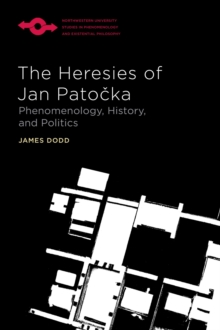
The Fragile We : Ethical Implications of Heidegger's Being and Time Paperback / softback
by Lawrence Vogel
Part of the Studies in Phenomenology and Existential Philosophy series
Paperback / softback
Description
Critics have charged that Martin Heidegger's account of authenticity is morally nihilistic, that his fundamental ontology is either egocentric or chauvinistic; and many see Heidegger's turn to Nazism in 1933 as following logically from an indifference, and even hostility, to ""otherness"" in the premises of his early philosophy.
In ""The Fragile ""We"", ethical implications of Heidegger's ""being and time"", Lawrence Vogel presents 3 interpretations of authentic existence - the existentialist, the historicist, and the cosmopolitan - each of which is a plausible version of the personal ideal depicted in ""being and time."" He then draws parallels between these interpretations and three moments in the contemporary liberal-communitarian debate over the relationship of the ""I"" and the ""We."" His book contributes both to a diagnosis of what there is about ""Being and time"" that invites moral nihilism and to a sense of how fundamental ontology might be recast so that ""the other"" is accorded an appropriate place in an account of human existence.
Information
-
Available to Order - This title is available to order, with delivery expected within 2 weeks
- Format:Paperback / softback
- Pages:148 pages
- Publisher:Northwestern University Press
- Publication Date:06/07/1994
- Category:
- ISBN:9780810111400
Information
-
Available to Order - This title is available to order, with delivery expected within 2 weeks
- Format:Paperback / softback
- Pages:148 pages
- Publisher:Northwestern University Press
- Publication Date:06/07/1994
- Category:
- ISBN:9780810111400










